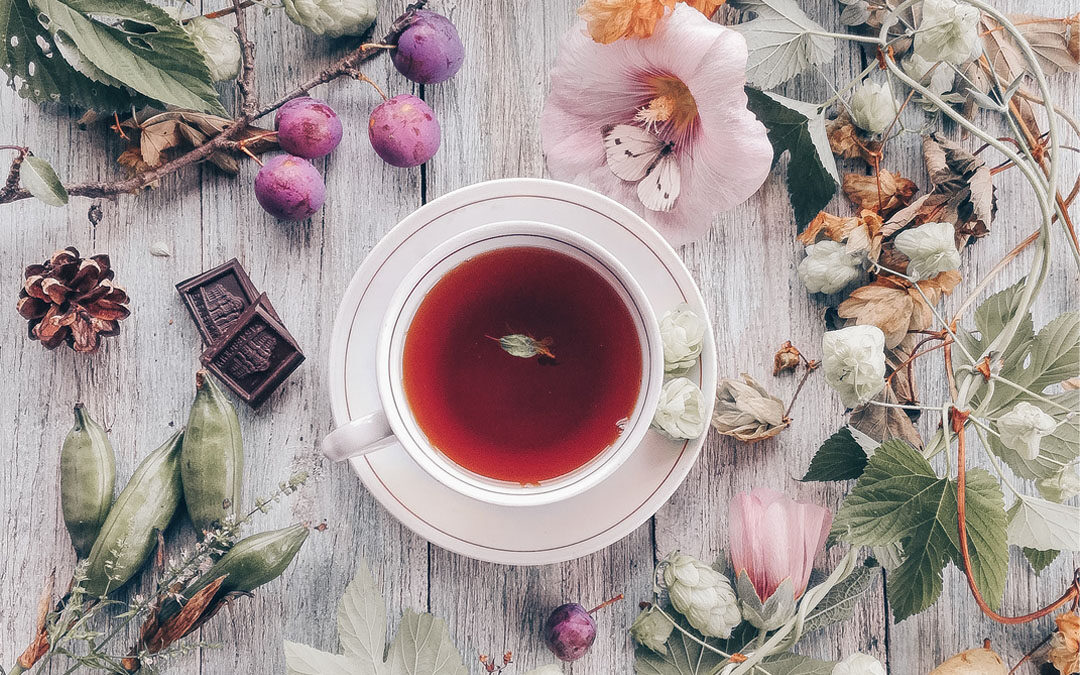It seems sensible that pregnant women enjoy herbal drinks.
Water can get very monotonous after a while, but staying hydrated is crucial during pregnancy.
Rosehips have long been used to make tea, but are they safe to consume while pregnant?
KEY TAKEAWAYS
✅ According to the American Pregnancy Association, herbal tea should be drank during pregnancy in “food proportions”.
✅ Rosehip tea is frequently offered as a combination. Rosehip and hibiscus are the most well-liked.
✅ Teas made with hibiscus should not be consumed while pregnant.
Rosehip tea consumption during pregnancy has received little investigation, therefore it’s advisable to limit consumption to culinary amounts only, especially with a tea mix that has been professionally produced. Rosehip dosages in medications or health supplements should be avoided by expectant mothers.
Here is the skinny on rosehips’ pregnancy safety if you enjoy drinking them as a caffeine-free beverage or to enhance your vitamin C levels.
Can You Drink Rosehip Tea While Pregnant?
According to the American Pregnancy Association, herbal tea should be drank during pregnancy in “food proportions”. However, this does not imply that all herbal teas are secure.
The simplest method to accomplish this is to stay with commercially produced mixes because they frequently come in teabag portions and employ carefully regulated amounts of ingredients. Teabags are a better choice than custom, loose blends since the latter can contain quantities of an ingredient that are excessive or much over the dosage that is advised.
According to a 1993 Australian study, 3% of pregnant women drank rosehip tea. Increasing vitamin C levels was one frequent justification. Due to inadequate testing, the same thesis also noted that there is little known about the safety of herbal tea during pregnancy. Researchers reaffirmed this in 2003. According to the American Pregnancy Association, there is not enough trustworthy information available regarding the safety of drinking rosehip tea while pregnant.
All of the aforementioned doesn’t necessarily imply that drinking rosehip tea while pregnant is dangerous, but it’s definitely wiser to err on the side of caution and only consume rosehip tea sometimes in food-sized amounts.
When pregnant, is rosehip and hibiscus tea safe to drink?
Rosehip tea is frequently offered as a combination. Rosehip and hibiscus are the most well-liked. Teas made with hibiscus should not be consumed while pregnant. Read my post on the safety of hibiscus during pregnancy for more information.
Can I Consume Rosehip Jelly, Jam, or Syrup While Pregnant?
Despite the paucity of research, rosehips are probably safe when consumed in moderation as food rather than as a herbal supplement.
This indicates that since rosehip jam or jelly only contains a little number of fresh rosehips, it is safe to consume while pregnant (usually blended with other fruits like apples to help it set, too).
Due to its high vitamin C content, rosehip syrup is commonly used as a preventative measure against colds and the flu. However, if you are pregnant, it should still only be consumed in tiny dietary amounts.
Try to stick to jellies, jams, or syrup that is made commercially. The rosehips will have been meticulously cleaned during the manufacturing process, and they will either have been pasteurized or sterilized. Products created from rosehips may be contaminated with undesirable pesticide residue.
Clean the rosehips carefully before using them if you plan to make your own rosehip syrup or jelly. My essay about washing produce when pregnant might be of use to you as well.
Are Rosehips Beneficial During Pregnancy?
Due to their high vitamin C and antioxidant content, rosehips do provide some health benefits, but you should only consume small amounts.
However, processing rosehips significantly reduces their vitamin C content (source: WebMD). It can be difficult to determine how much vitamin C is actually present in rosehip products.
It is much preferable if you are pregnant to obtain vitamin C and antioxidants from sources that are safe for use during pregnancy in any amount, such as fresh produce, fruit, and other nutrient-dense meals.
Although ingesting a little amount of rosehips is unlikely to be hazardous, pregnant women are more usually advised to consume alternative sources of vitamin C, such as dark leafy greens, bell peppers (learn about the advantages of bell peppers in pregnancy here), broccoli, and citrus fruits.
What Happens with Rosehip Oil When Pregnant?
Even though this website focuses on food, questions about using rosehip oil on dry skin when pregnant are frequently asked. Although rosehip oil has been claimed to be useful in treating stretch marks, there is currently no reliable scientific data to support its use on the skin during pregnancy.
Before using rosehip oil, it is best to speak with your healthcare professional because it is a supplemental or alternative medication. Overall, there is not enough research on rosehips to suggest using them during pregnancy, whether as tea, jelly, jam, or syrup.
Although they might contain some vitamin C and are unlikely to be hazardous in modest doses, there are much better ways to increase your nutrient intake during pregnancy.
